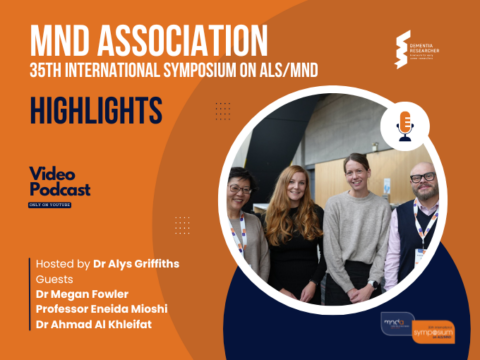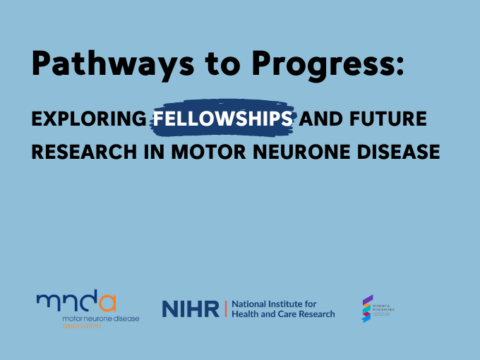
Dr Hannah Smith
Name:
Dr Hannah Smith
Job Title:
Postdoctoral Research Fellow
Place of work / study:
The University of Edinburgh
Area of Research:
Motor neuron disease
How is your research funded:
MND Scotland / Muscular Dystrophy UK
Tell us a little about yourself:
I’m a postdoctoral research fellow working in motor neuron disease at the University of Edinburgh. My PhD project characterised the motor neuron development of a zebrafish mutant related to Spinal Muscular Atrophy, and I graduated in 2019. My first postdoc was in Singapore, working on bone development and homeostasis using medaka fish as a model, but I was heavily impacted by Covid. I’ve returned to MND for my second postdoc, and have also switched model organism, to a TDP-43 mouse model of ALS/MND.
My current project is much more bioinformatics-focused, generating and analysing the transcriptome and translatome in the motor neurons at pre- and early symptomatic stages. We hope to find new insights into the earliest cellular dysfunction of ALS, focused around changes to the protein translation. Outside of research, I’m a committed science communicator and you can always find me at public engagement events, both at the University of Edinburgh or further afield.
Tell us a fun fact about yourself:
To de-stress during my PhD, I learned how to juggle fire! Now as a postdoc, I de-stress by practicing acrobatics!
Why did you choose to work in MND research?
Motor neuron disease is a devastating condition, with an average life expectancy after diagnosis of just 2 years. Furthermore, the mechanisms behind the disease are still largely unknown, which also results in poor current treatment options. As a researcher, these facts make MND both a challenging but also rewarding disease to work on. I’ve always been interested in the fundamentals of how cells work – and motor neurons are amongst the most complex cells in our body, transmitting movement signals across huge distances and forming complex circuits with the brain, muscle, and spinal cord. It’s fascinating to visualise this at the cellular level down a microscope, or to use other tools to find out exactly how these cells maintain themselves. And the more we learn, the closer we come to finding better treatment options for people living with MND, which is why I chose to dedicate my career to this field.
What single piece of advice would you give to an early career researcher?
Find and develop your special skill outside of just research. I’ve always loved public engagement, so I’m constantly looking for opportunities to do so. Your special skill might be teaching, or mentoring, or science communication, but whatever it is, it’s worth developing further.
What book are you reading right now? Would you recommend it?
Nothing at the moment.
Favourite ways to unplug and unwind?
Juggling
Favourite film of all time?
Too many to choose from
Can we find you on Twitter, Instagram or LinkedIn?
Follow Hannah Smith on LinkedIn

 Print This Post
Print This Post





